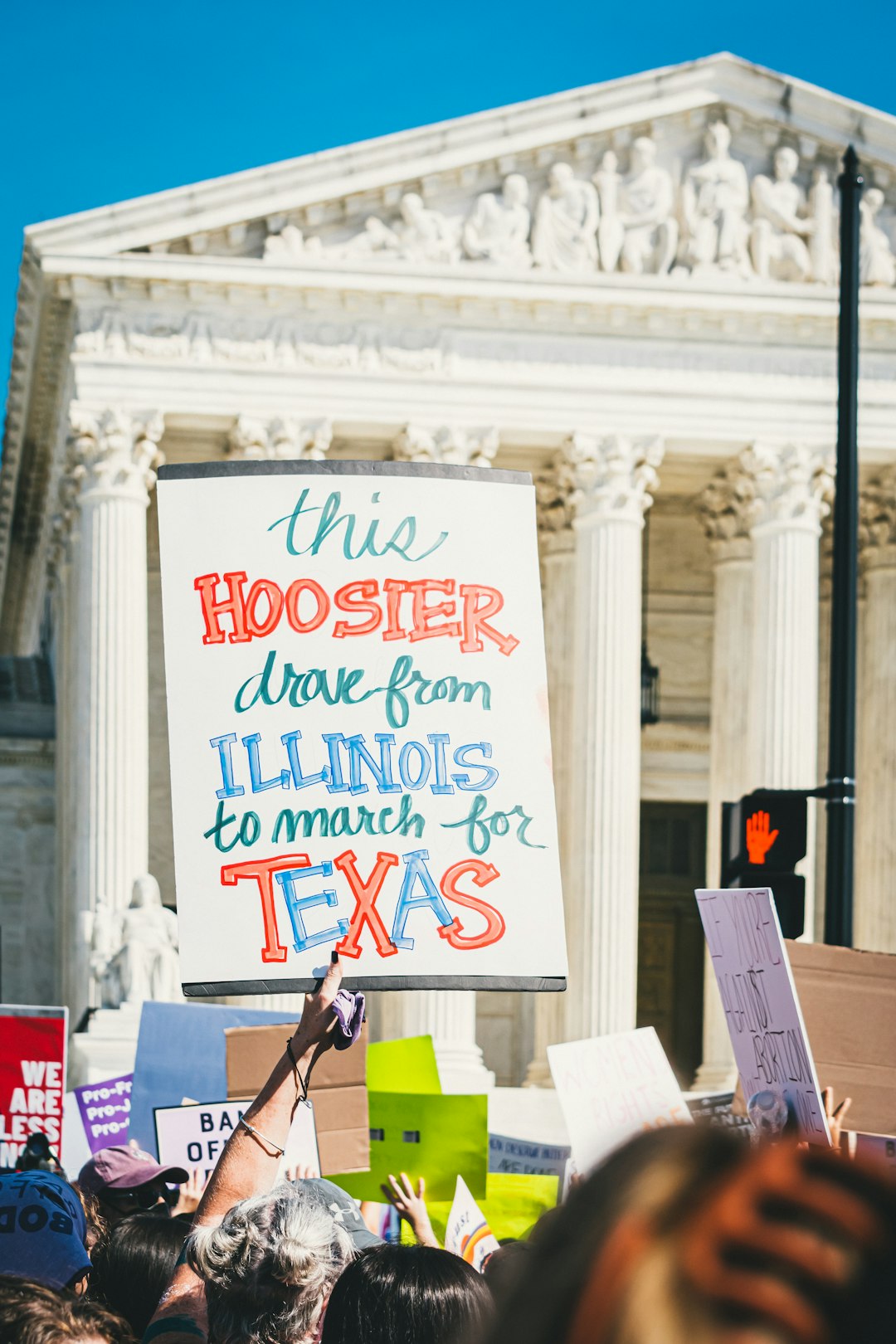Robocalls have become a pervasive problem in Washington D.C., causing distress to residents and businesses. Blockchain technology emerges as a powerful solution, offering enhanced security, transparency, and decentralization to combat this issue. By implementing custom smart contracts, decentralized phone books, and cryptographic signatures, DC law firms specializing in robocall lawsuits or representing affected clients can significantly reduce unwanted calls from spam call lawyers DC or robocall attorneys DC. This technology enables better verification, opt-ins, and records of caller identity, creating a more secure environment for capital residents. Despite challenges, successful integration could revolutionize robocall prevention, requiring clear legal frameworks to adapt to this new system.
In the digital age, Washington D.C., like many urban centers, faces a growing menace from robocalls, impacting residents and businesses alike. This article explores blockchain solutions as a powerful tool to combat these nuisance calls, offering relief to both robocall lawyer DC and spam call law firm DC professionals and their clients. By understanding the impact of robocalls in D.C. and leveraging blockchain’s potential, we present a step-by-step guide for implementation and discuss the benefits and challenges ahead for secure communication. Discover how this technology can revolutionize anti-spam measures and protect against future robocall DC threats.
Understanding Robocalls and Their Impact in DC

Robocalls have become a ubiquitous and often unwanted part of daily life in Washington D.C., affecting countless residents and businesses alike. These automated telephone calls, typically originating from spam call law firms or Robocall lawyers DC, are designed to deliver pre-recorded messages en masse, often with the intention of selling products, services, or even spreading malicious content. In a city known for its political discourse, the influx of Robocalls can be particularly disconcerting, causing frustration and disrupting peaceful communication channels.
The impact of Robocalls in DC is significant. Many citizens have reported feeling harassed by these calls, leading to increased stress and potential mental health concerns. Businesses, especially small enterprises, often struggle with the administrative burden of managing and blocking these automated spam calls. Furthermore, the ease of deploying such campaigns has given rise to fraudulent activities, as some Robocall attorneys DC may engage in deceptive practices, taking advantage of unsuspecting individuals. Therefore, there is a pressing need for effective solutions to combat this growing issue, and blockchain technology offers a promising path forward.
The Role of Blockchain Technology in Combating Spam Calls

Blockchain technology is revolutionizing many industries, and its potential to combat robocalls in DC cannot be overlooked. By design, blockchain offers a secure, transparent, and decentralized system that can significantly enhance current anti-spam measures. Each transaction or interaction on the network is recorded in blocks, which are then linked together, creating an immutable record. This makes it an ideal tool for identifying and blocking spam calls, as it provides a clear trail of all communications.
In the context of robocall lawyer DC or spam call law firm DC, blockchain can serve as a robust defense mechanism. It enables consumers to easily verify the authenticity of incoming calls and protect themselves from fraudulent activities. With blockchain-based solutions, users can choose to opt-in for specific types of communication, ensuring that only consenting parties are able to reach them. This level of control and transparency can greatly reduce the volume of unwanted robocall DC or spam call lawyers DC, providing a more peaceful and secure environment for residents in the capital.
Implementing Blockchain Solutions: A Step-by-Step Guide for DC Law Firms

Implementing Blockchain Solutions: A Step-by-Step Guide for DC Law Firms
For DC law firms looking to combat robocalls and enhance their spam call defenses, blockchain technology offers a promising path forward. Here’s a streamlined guide to help you integrate this innovative solution effectively:
1. Assess Your Current System: Begin by evaluating your firm’s current anti-robocall measures. Identify vulnerabilities and areas where blockchain could provide additional security. This step is crucial for understanding the specific needs of your practice, whether it specializes in handling robocall lawsuits (e.g., Robocall Lawyer DC) or representing clients affected by spam calls (Spam Call Law Firm DC).
2. Explore Blockchain Applications: Research and understand how blockchain can be leveraged to combat robocalls. This might involve implementing smart contracts to verify caller identity, creating decentralized phone books that store verified contact information, or utilizing cryptographic signatures to ensure communication integrity. Engaging with experts in the field and exploring existing blockchain-based anti-spam solutions (Spam Call Lawyers DC) can provide valuable insights.
3. Choose a Blockchain Platform: Select a suitable blockchain platform for your firm’s needs. Options include public blockchains like Ethereum, which offer robust security but may be costlier, or permissioned blockchains designed for private networks within the law firm, providing more control over data access. Consider factors like scalability, transaction speed, and privacy requirements when making this decision.
4. Develop Smart Contracts: Collaborate with blockchain developers to design and deploy smart contracts tailored to your firm’s anti-robocall strategy. These contracts can automate processes such as verifying caller identity, blocking unauthorized calls, or recording communication data in an immutable ledger (Robocall DC). Ensure the contracts align with relevant regulations and industry standards.
5. Integrate Blockchain into Existing Systems: Seamlessly integrate your blockchain solution with your firm’s existing contact management systems and call tracking software. This step ensures that all client interactions are securely recorded on the blockchain, enhancing data integrity and providing an accurate audit trail (Spam Call Law Firms DC).
6. Train Staff and Ensure Compliance: Educate your legal team about the new blockchain-based system to ensure efficient adoption. Implement procedures to ensure compliance with data protection regulations, as maintaining client privacy is paramount in handling robocall cases (Lawyer for Robocall DC).
7. Monitor and Adapt: Regularly review the effectiveness of your blockchain solution, making adjustments as needed. Stay updated on industry developments and emerging threats to ensure your firm remains at the forefront of robocall defense strategies.
Benefits and Challenges: Securing the Future of Communication with Blockchain

Blockchain technology offers a promising solution to combat the pervasive issue of robocalls in the nation’s capital and beyond. By leveraging its decentralized nature, blockchain can enhance communication security and provide a robust defense against unwanted spam calls. One of the primary benefits is the ability to create an immutable record of caller identification and transaction data, making it easier to track and trace the sources of robocalls. This level of transparency can aid robocall lawyer DC and spam call lawyers DC in building stronger cases against malicious callers.
However, implementing blockchain for this purpose is not without challenges. Integrating this technology into existing communication systems requires significant collaboration between telecom providers, regulators, and legal experts. Ensuring interoperability while maintaining the security of user data is crucial. Moreover, as the spam call law firm DC industry adapts to this new system, there must be clear and consistent legal frameworks in place to protect consumers from fraudulent activities. With proper navigation of these challenges, blockchain has the potential to revolutionize how we perceive and prevent robocalls in the future.






